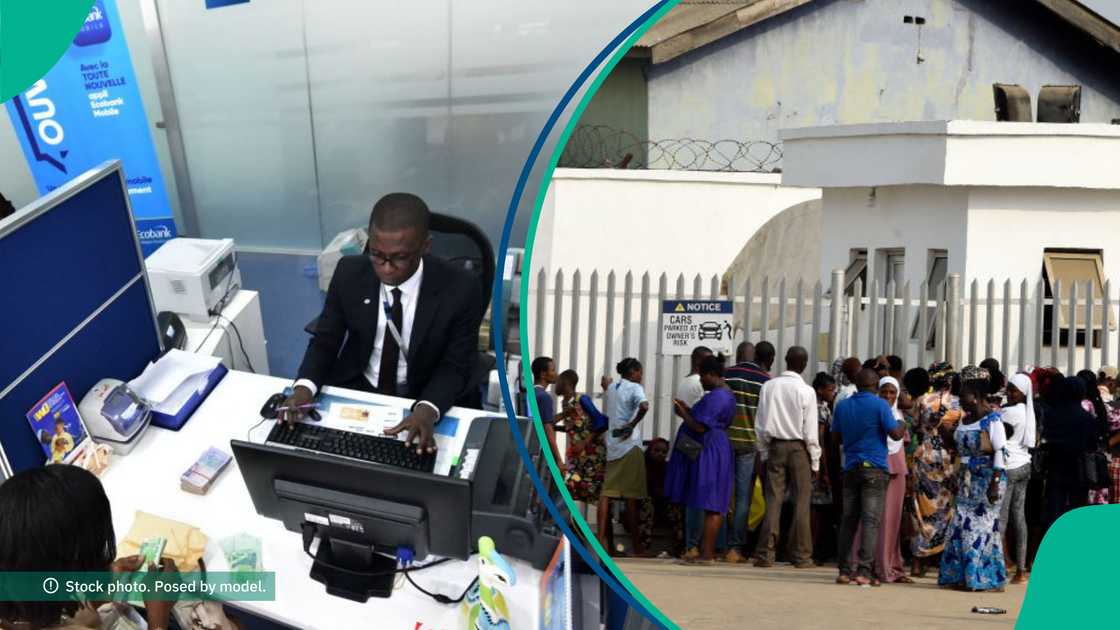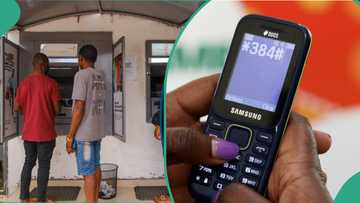New Data Shows 2.14% Rise in BVN Enrolment As CBN, PenCom Issue Requirement Order
- The number of Bank Verification Numbers in Nigeria has increased as more Nigerians seek financial services
- The BVN is now a compulsory requirement for most financial services, as well as pension-related needs
- The increasing need for a BVN has led to an increase in registrations, with figures now growing at a faster pace
Legit.ng journalist Dave Ibemere has over a decade of business journalism experience with in-depth knowledge of the Nigerian economy, stocks, and general market trends.
New data released by the Nigeria Inter-Bank Settlement System, the number of BVN issued in Nigeria has climbed to 64.8 million in January 2025.

Source: Getty Images
This represented a 2.14% increase from the 63.5 million recorded at the end of 2024.
Rise in BVN enrolment
The Bank Verification Number (BVN) is an 11-digit unique identity for each individual across the Nigerian Banking industry.
The Central Bank of Nigeria, in collaboration with all banks, launched the BVN on February 14 2014.

Read also
Relief for customers as MTN, Glo, and 9mobile will no longer disconnect 9 banks’ USSD codes today
BVN offers a unique identity that cuts across the Nigerian Banking industry for easy identification and verification at various points of banking operations.
The BVN was designed to strengthen overall banking security and streamline authentication processes. It has been instrumental in reducing financial fraud, enhancing transaction security, and streamlining identity verification across the banking sector.
All bank customers within and outside Nigeria must register for a BVN, which provides a unique and verifiable identifier across the Nigerian banking industry. This applies to customers with accounts in different banks.
The rise in electronic financial services and the demand for BVN for various services from the federal government and the CBN have helped increase the number of registered individuals.
NIBSS data showed that in 2021, BVN enrolment stood at 51.9 million. By 2022, the figure rose to 56 million, indicating a 7.9% increase.
The trend continued in 2023, with enrolments reaching 60.1 million, representing a 7.3% growth compared to the previous year.
In 2024, BVN adoption surged to 63.5 million, driven by public awareness campaigns and the mandatory integration of BVN in financial services and government programmes.
By January 2025, the enrolment figure hit 64.8 million, adding 1.3 million new registrants, representing a 2.14% year-on-year growth.
How to Get a BVN
BVN can only be done in the bank, where an enrolment form will filled and completed
An acknowledgement slip with a transaction ID will be issued, and the BVN will be generated within 24 hours.
PenCom makes BVN new requirements for RSA
Earlier, Legit.ng reported that PenCom issued a directive mandating the inclusion of Bank Verification Numbers (BVN) for all Retirement Savings Account (RSA) registrations and data recapture processes.
This instruction was announced in a circular signed by A.M. Saleem, the Head of the Surveillance Department and will take effect on February 1, 2025.
PenCom also listed new requirements for RSA registration to simplify the process for formal sector employees, including letters of employment or appointment.
Proofreading by James, Ojo Adakole, journalist and copy editor at Legit.ng.
PAY ATTENTION: Сheck out news that is picked exactly for YOU ➡️ find the “Recommended for you” block on the home page and enjoy!
Source: Legit.ng



